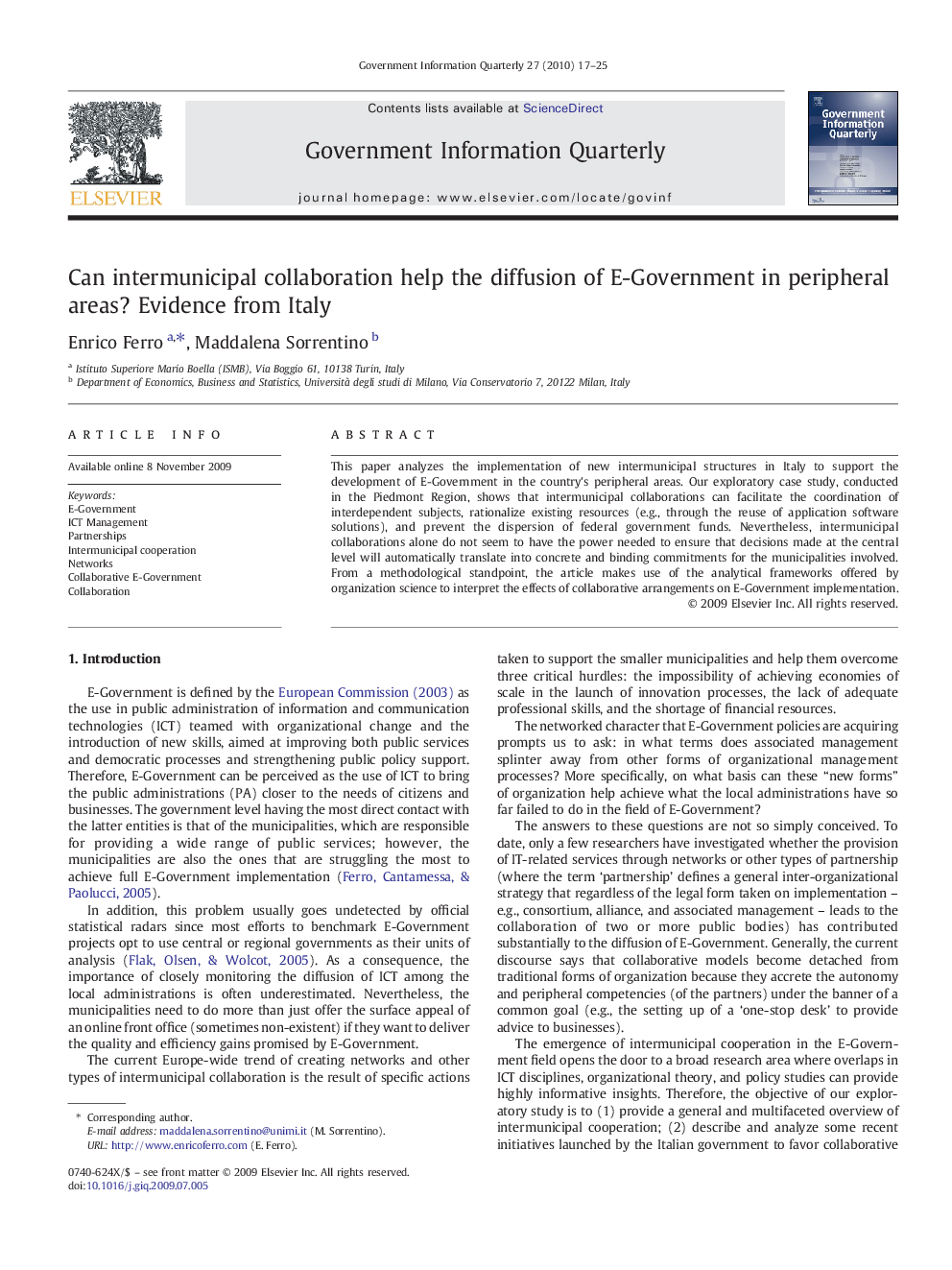| Article ID | Journal | Published Year | Pages | File Type |
|---|---|---|---|---|
| 1024710 | Government Information Quarterly | 2010 | 9 Pages |
This paper analyzes the implementation of new intermunicipal structures in Italy to support the development of E-Government in the country's peripheral areas. Our exploratory case study, conducted in the Piedmont Region, shows that intermunicipal collaborations can facilitate the coordination of interdependent subjects, rationalize existing resources (e.g., through the reuse of application software solutions), and prevent the dispersion of federal government funds. Nevertheless, intermunicipal collaborations alone do not seem to have the power needed to ensure that decisions made at the central level will automatically translate into concrete and binding commitments for the municipalities involved. From a methodological standpoint, the article makes use of the analytical frameworks offered by organization science to interpret the effects of collaborative arrangements on E-Government implementation.
